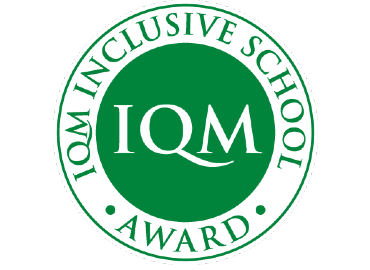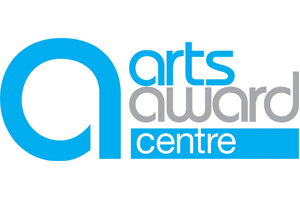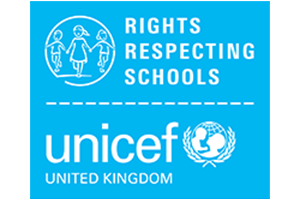Religious Education
Religious Education at Breckon Hill Primary School
Curriculum Intent
Middlesbrough Agreed Syllabus for Religious Education
The principal aim of RE is to engage pupils in systematic enquiry into significant human questions which religion and worldviews address, so that they can develop the understanding and skills needed to appreciate and appraise varied responses to these questions, as well as develop reasons of their own.
We want children to:
- Know about and understand a range of religions and worldviews, so they can:
- Describe, explain and analyse beliefs and practices, recognising the diversity that exists within and between communities and amongst individuals
- Identify, investigate and respond to questions posed, and responses, offered by some of the sources of wisdom found in religions and worldviews
- Appreciate and appraise the nature, significance and impact of different ways of life and ways of expressing meaning.
- Express ideas and insights about the nature, significance and impact of religions and worldviews, so they can:
- Explain reasonably their ideas about how beliefs, practices and forms of expression influence individuals and communities
- Express with increasing discernment their personal reflections and critical responses to questions
- Appreciate and appraise varied dimensions of religion.
- Gain and deploy the skills needed to engage seriously with religions and worldviews, so that they can:
- Find out about and investigate key concepts and questions of belonging, meaning, purpose and truth, responding creatively
- Enquire into what enables different individuals and communities to live together respectfully for the wellbeing of all
- Articulate beliefs, values and commitments clearly in order to explain why they may be important in their own and other people’s lives.
Because of this, we feel it is important for the subject to be taught discretely as well as incorporated within other curriculum subjects such as English and Art. There may be times when a topic lends itself to a special RE day or week focus.
Our RE curriculum is structured so that it…
…makes sense to pupils
• It offers a clear structure for learning: the units of study are based around the three strands of Believing, Expressing, Living. Pupils connect their learning with these three strands. All religious and non-religious worldviews involve these three strands and while questions may focus on one, they also connect to the other strands. This helps our pupils to see these connections.
• A good grounding of systematic study of individual religions is used to prepare pupils for thematic study, where they compare religions. For example, studying two religions separately in the first two terms and then comparing them in the summer term helps pupils to make sense of and build on their learning through the year.
…focuses on core concepts
• Key ideas and concepts are at the heart of religion and worldviews.
• Pupils explore these from different perspectives to enrich their understanding (e.g. asking how a religious believer or a non-religious person might respond to a key question or idea, or how believers from different places, times or denominations may respond).
…allows pupils to encounter diverse examples of religion and worldviews
• We offer pupils contemporary, contextual accounts, rather than implying that there is a generic Christianity, Islam or atheism that applies to all followers at all times.
• We show something of the diversity of religion/ worldviews (across time and place; within and between traditions) by using examples and case studies.
• Pupils experience texts, not just short quotes, developing skills of reading and interpretation.
• Pupils are shown connections and differences across religions and beliefs.
• Pupils explore religious and non-religious worldviews.
…enables pupils to embed learning in their long-term memory
• Staff clarify technical terms and check pupil understanding regularly.
• We find creative ways to enable pupils to handle and absorb core knowledge.
• We give pupils repeated opportunities to engage with content.
• We give pupils a chance to revisit and recall knowledge – in thoughtful and engaging ways (i.e. not just quizzing!). For example, through presenting images or texts from previous units for pupils to label, describe, annotate and explain.
…makes space for pupils’ own beliefs/worldviews
• We allow pupils to articulate ideas, with reasons, arguments, rebuttals and responses – but leaving space for ambiguity and contradiction.
• We recognise the huge majority of non-religious pupils in RE – and make space for them as a focus for study. What do they believe, why, and how do they live?
…encourages pupils’ personal development, applying their learning to living
• Enable pupils to disagree respectfully.
• Engage pupils in handling and applying their learning.
• Give opportunities for pupils to make connections between the ideas studied, the world around them, and within their own worldviews.
Curriculum Implementation
Our RE curriculum follows the Jigsaw Scheme of work from Nursery to Year 6. Each unit of work is based on a key question.



Due to the diverse nature of our school children may encounter other religions and worldviews at different stages in addition to the scheme of work.
Curriculum Impact
It is our aim that the RE curriculum equips children with key knowledge and skills set out in the Agreed Syllabus.
RE is assessed and developed through the use of the Agreed Syllabus assessment model and tracked twice a year.
The impact of the RE curriculum is monitored by the subject leader and evidenced in an annual portfolio.
Parental right of withdrawal from RE
This was first granted in 1944 when curricular RE was called ‘Religious Instruction’ and carried with it connotations of induction into the Christian faith. RE is very different now – open, broad and exploring a range of religious and non-religious worldviews. In the UK, parents still have the right to withdraw their children from RE on the grounds that they wish to provide their own RE. This provision will be the parents’ responsibility. This right of withdrawal exists for all pupils in all types of school, including schools with and without a religious designation. Parents also have the right to withdraw their child from part of RE, and can do so without giving any explanation.
Should a parent/carer wish to withdraw their child from RE, please speak to a member of staff who will be able to help.

















